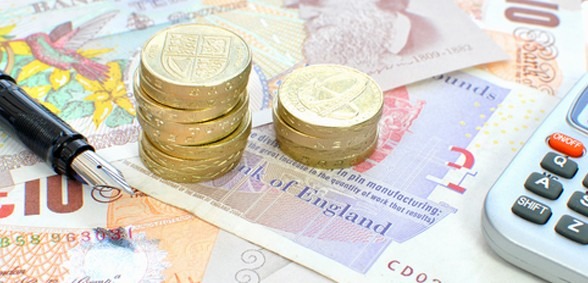
Employees in the UK are being encouraged to explore their tax relief options to ensure they are not left footing the bill for their work-related expenses.
Tax preparation specialist David Redfern, MD of DSR Tax Claims Ltd, added his support to a HMRC Twitter campaign to ensure that employees are made aware of their entitlement to various tax reliefs which are open to them.
While taxpayers who are required to submit a Self Assessment tax return tend to have a good awareness of the various business expenses they are entitled to claim tax relief for, employees who are taxed via the PAYE (Pay As You Earn) system frequently have less knowledge of tax relief options.
Redfern commented: “Taxpayers who pay their tax through the PAYE system often have the mistaken belief that they aren’t entitled to tax relief, yet many employees would be surprised to know that there are a number of areas of tax relief for their day to day working expenses that they could be entitled to. Perhaps they work from home or wear a uniform to work that they are responsible for laundering – these are all hidden areas of tax relief that employees should be aware of to make sure they aren’t missing out”.
Redfern has discovered that travel expenses regularly form the greatest proportion of potential employee tax relief, with employees able to claim mileage for any work-related journeys they make in their own vehicle, excluding their journeys to and from their usual place of work. HMRC have approved mileage rates which can be used to calculate the tax relief that can be claimed, with car journeys up to the first 10,000 miles being worth 45p per mile.
In addition to mileage rates, employees can claim travel expenses such as public transport costs, parking fees as well as overnight accommodation and food and drink costs for business travel outside of the employee’s normal journey to work.
Redfern stated: “HMRC allows these expenses to be claimed as tax relief because they recognise that employees shouldn’t be left out of pocket just for doing their job – however, the expenses do need to be incurred for business purposes and there needs to be some evidence that they were actually incurred so keeping accurate records of mileage and expenses is vitally important”.
Other work expenses that can form tax relief entitlement include the costs of laundering and maintaining any work uniform they are expected to wear, or repairing and replacing tools and equipment required to undertake the employee’s job. Redfern commented that this can include professional subscriptions and union fees which are required as part of the employee’s job role, stating that
“These hidden expenses can soon mount up but if these costs are essential to your job, they can often be claimed as tax relief. Laundry costs can be claimed as a flat expense if you haven’t the patience for calculating exactly how much you spend cleaning your work uniform – HMRC issues a list of flat rate expenses per profession, which can make claiming much easier, and there is a standard £60 flat rate for those professions which aren’t listed”. Initial purchase costs cannot be claimed as tax relief.
Flat rate expenses can also be used to calculate costs associated with working from home, dependent on the hours per month spent working from home. Redfern added: “HMRC’s flat rate expenses are an ideal way of ensuring that claiming tax relief is a simple process. People can be put off by the notion that it will be a complicated process so the flat rate system is great for those taxpayers who don’t want the hassle of keeping receipts and calculating exact costs”.
However, for those taxpayers who believe that their expenses are greater than the flat rate deduction rate, there is the option of claiming exact expenditure providing they provide evidence that the expense was incurred.
Redfern emphasised that these tax reliefs cannot be claimed if the employee has already been reimbursed for their expenses and any expenses must have been incurred for work purposes only. He said: “In most cases, claiming these tax reliefs is a simple online process – however, if your expenses are greater than £2,500 in any tax year, you will need to register for Self Assessment to claim them.”
Don’t forget to follow Dealer Support on Twitter!

Be the first to comment